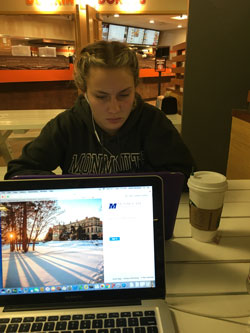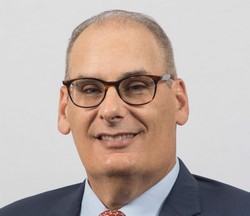On April 17, 1975, as the Khmer Rouge seized the capital of Phnom Penh, the life of a six-year-old girl named Bopha Yonge was changed forever. Her family was driven out of their village of Bātdâmbâng and with millions of others, was forced straight into Hell. In a country that is less than half the size of CA, leader of Khmer Rouge and paramilitary dictator Pol Pot sought out to purify Cambodia and eliminate educated people in order to nationalize peasant farming. More than one million people died.
Now, 34 years later, Bopha reflects on the memories of living, experiencing, and escaping the hardships her and her family faced during the Khmer Rouge reign. Bopha Yonge was her original name before the Khmer Rouge clutched the capital. It was her name before hostility and greed stepped into control. It was her name before the word “lifeless” could be seen on the people of Cambodia, dead or alive. It was her name before the vivacious life of Cambodia was blown out; it was her name before Pol Pot announced that every birth certificate, passport, and other forms of identification were going to be burned.
“It’s like you no exist no more—your past erased and no one knows,” said Bopha as her eyes darted toward the floor. She sat silent for a few moments; breathing evenly, her breath was calm despite her panicked eyes.
Every civilian in Cambodia received a new name and burden. Bopha’s father had passed away before she received her new name, Chrep. And eventually received a new last name when her mother married her stepfather. Bopha’s new identity was Chrep Chhouth, pronounced as Shhrep Chtruth. Her new name did not hold the significance of her original, even though her new birth certificates and new forms of identification had her new name written on them.
“I’m Chrep to some and Bopha to others, like two people but one person,” Bopha said. Her eyes lit up ever so slightly, as if she was smirking with them as she made a little joke.
Millions were forced to leave their cities and villages to live on farmland to work for Pot. People worked mandatory 16-18 hour days to help gain resources to benefit the regime. Some days would be hot, stifling breath without being able to enjoy the refreshing taste of water as it quenches thirst.
“Even though the water is dirty, it taste pretty good,” said Bopha, “We didn’t get much, so we did what we do at the time.”
But water wasn’t good enough to keep people alive. People would die due to the heat, the labor intensive farming or would be killed if they could not do the work. Within all the murders, deaths, and the stifling presence of the Khmer Rouge, there was a light at the end of the tunnel for Bopha. It was so close, she even demonstrated reaching out in front of herself to grab the light that was ahead of her. Instead of smirking with her eyes, she smiled with her mouth, showcasing her deep dimples on both her cheeks. She likes to say that it was all luck when her family escaped from Cambodia.
“Well,” Bopha said as she touched her finger to her bottom lip and graze it ever so subtly, “I remember Vietnamese military groups came in and started shooting—bang bang bang! That was opportunity to get out—run. My family walked day and night to Tai Land refugee camp on border of Tai Land and Cambodia.”
With the help of the United Nations Children’s Fund, also known as UNICEF, the people of Cambodia were able to finally reach the light at the end of the tunnel, and feel its warmth hitting their fingertips. In Bopha’s case, she felt the ocean breeze caress her skin as she boarded the boat to come to America. A church sponsored Bopha’s family to come to America, and before they knew it, they were in the city of skyscrapers.
“We saw big buildings and thought, ‘My God dis city was mayd of gold,'” said Bopha.
Her eyes widened and her smile reached across her face from ear to ear, even the freckles across her nose sparkled. Bopha and her family landed in JFK on September 21st, 1984, after almost 10 years of living in destitute farmland in Cambodia, they finally reached the city of lights, the city of freedom.
Bopha’s footing in America wasn’t exactly even. She started seventhgrade in the back of the classroom, and that’s where she stayed. Everyday she was taken into the back of the class and sat with another teacher to learn English. The lessons were slow and it was hard for her to fit in with the other students because she was deliberately separated from the others.
“It was isolated, very hard to understand da lessons—I always felt uncomfortable,” Bopha said. With many Cambodian refugees coming to America in the early 1980s (of the 118, 823 that were in the U.S. in the 1990 census, only 14 percent arrived before the 1980s) the proper education was a necessity. For Bopha, school eventually got easier.
“I still had to sit back, but dis time I knew da answers,” said Bopha as she wagged her dark caramel index finger and stuck out her bumble gum pink tongue.
Although America wasn’t Bopha’s homeland, it did provide her with new beginnings to make it feel like home. America offered her opportunity, freedom, education, and a new name—Rosie. The story behind her name change is actually pretty simple. When immigrants come to America to become a citizen, they have the option to change or keep their name. For some, keeping their name is a symbol of pride of their country and for others, it’s just a matter of pronunciation.
“No one could ever pronounce my name in school, they say my name like ‘Trip’ instead of ‘Chrep’—like ‘shhrep’, see? No hard to do,” Bopha said.
Annoyed with the mispronunciation of her name, little Bopha had changed her name again. This time it was a name of her choosing that no one else gave to her.
“My real name ‘Bopha’ mean flower or rose, so I decided to name myself Rosie in honor of my roots,” said Rosie, “I’m proud American now.”
Rosie beamed, her smile radiated contagiously, I couldn’t help but smile with her. It was then that I realized that I was really present with her. Throughout the interview I was lost in her words and her emotion that I had forgotten my own feelings, her feelings became mine.
Despite America’s warmth and Rosie’s new name, there were flashbacks from time to time. Rosie would recall seeing grey lifeless bodies with no more light on their cheeks. She’d think back to times of constant malnutrition and suffering; the heat of the sun stifling her breathes, as she’d be farming out in the fields.
“People would point gun at you—mentally very disturbing—I got very emotional and cry a lot,” said Rosie.
After 34 years, Cambodia has made a comeback and Rosie’s village of Bātdâmbâng is the main hub of northwest Cambodia. Bātdâmbâng is the second largest city and is now quite peaceful and pleasant with plenty of tourist attractions, according to Bātdâmbâng’s tourist website (with the slogan “Kingdom of Wonder” as the header). However despite the turn around that Cambodia was able to do, not all countries that experience gruesome genocides are able to make the same turn around. There are genocides occurring all over the world today that we are unaware of.
For Rosie, it hits home when news stories air about current genocides due to her first hand experience. Rosie tries not to focus on all the violence that is occurring in the world, although she volunteers when she can to help out those who suffer from genocides (she maintains the connection with UNICEF). Rosie is married with four children and lives in Brooklyn, New York. She thinks about Cambodia from time to time, but one thing is for sure as Rosie leans forward and winks at me, her ear-to-ear grin makes another appearance.
She whispers, “I don’t miss Cambodia, America is better.” And as she said that, I felt the warmth of the sun gleam through the window as it gently sailed across my arm. Rosie had found her light in America, and it seems as if her light had found me.



